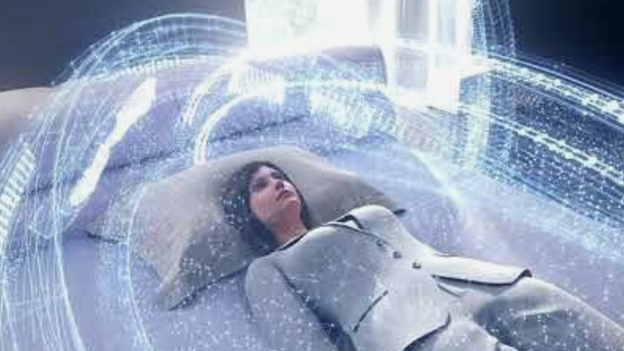Unveiling the Truth Behind ‘Medbeds’: A Glimpse into a Controversial Healing Phenomenon
In the quaint setting of East Dubuque, Illinois—a small town nestled along the Mississippi River—one unlikely establishment has sparked interest among wellness enthusiasts and skeptics alike. A transformed motel now houses medical devices marketed as “medbeds,” promising to impart “life force energy” to patients seeking relief from various ailments.
These “medbeds,” which are either short for “medical beds” or “meditation beds,” have gained traction on alternative medicine platforms and social media. However, their legitimacy remains mired in controversy. A recent visit to this establishment raised questions about what these devices claim to offer and whether they hold any scientific merit.
A Curious Experiment
Upon entering the Tesla BioHealing facility, visitors are greeted by a simplistic lobby that reinforces the motel’s former identity. After a brief registration, I was asked to test my energy levels using a metal box connected to a laptop. Moments later, I was led into a room reminiscent of its motel days, where I was to “receive” biophoton energy from a Tesla MedBed.
The atmosphere was undeniably intriguing, although I could not shake a sense of skepticism as I waited. The medbed’s components, sealed inside wooden containers, promised transformative experiences for those who laid upon them. Yet, the exact nature of what was inside these containers remained shrouded in secrecy.
Claims and Controversies
Advocates for the medbeds often tout their potential benefits through personal testimonials, claiming improvements in wellness after sessions. However, skeptics point out that these devices have not undergone rigorous scientific evaluations to substantiate their health claims. The disclaimers on Tesla BioHealing’s website assert, “We cannot diagnose, treat, cure, or prevent any disease or condition,” juxtaposed with assertions of positive health effects.
Dr. Steven Barrett, a retired psychiatrist, emphasizes the regulatory loopholes enabling these companies to operate. According to Barrett, FDA registration for health devices is often misinterpreted by consumers; it merely indicates that the manufacturer has notified the FDA about their existence, not that their products are effective. This regulatory ambiguity leaves consumers vulnerable to misleading health promises.
What Lies Beneath the Surface?
As I left the facility, I could not help but ponder what others had experienced during their sessions. While testimonials abound, scientific evaluations are scarce. Reports from customers who attempted to investigate the contents of the medbed cannisters have surfaced online, with some discovering unremarkable substances inside.
Although Tesla BioHealing insists that their products offer “priceless” health benefits, questions linger about the mechanics behind their supposed efficacy. The company refrains from disclosing details about the materials used in their technology, raising further doubts about authenticity.
Customer Testimonials vs. Research
The dichotomy between enthusiastic customer anecdotes and the lack of scientific validation creates a complicated narrative surrounding medbeds. A survey of customer opinions may paint a rosy picture, but without empirical evidence, claims remain unverified.
| Claim | Reality |
|---|---|
| Improves overall wellness | Lacks scientific backing |
| Promotes healing in various ailments | No clinical evidence available |
| FDA registered | Meaningless registration |
As the sun set on my journey home, I found myself reflecting on the personal experiences shared by others and the compelling stories crafted around these medbeds. Despite their increasing popularity, one fact remained clear: the realm of wellness is often interspersed with skepticism and the need for tangible proof.

